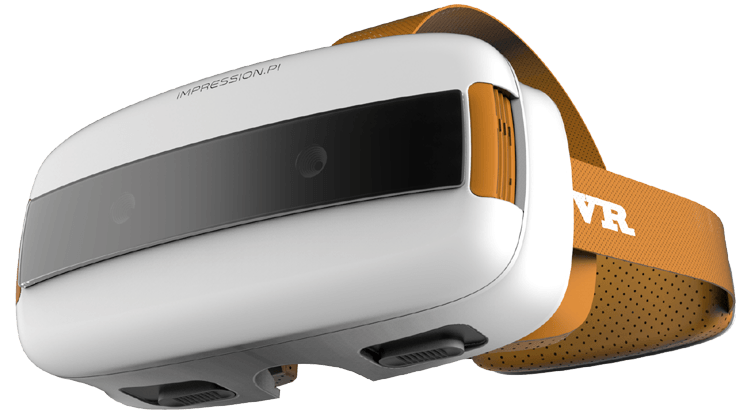INTERVIEW: ANLI HE, CEO AND CO-FOUNDER OF USENS
By: Anli He, CEO and co-founder of uSens
Tell us a little bit about yourself. What is your background? Is it your first business?
I’m Anli He, CEO of uSens, Inc. I co-founded the ARVR company in 2013 with my husband, Dr. Yue Fei who is the CTO, and our friend Chris Shi who is the COO.
I’ve held various technical leadership roles where I learned how to navigate the challenges of managing a team designing and brining new technologies to market. uSens is the first company I started based on this track record of technical and business experience in both hardware and software development. I was a senior design and sales engineer at Schlumberger Technologies, AT&T, and Intel Corp. Prior to that, I got my BE degree in Computer Engineering from Wuhan University, an MS of Computer Science from Syracuse University, and an MBA from Duke University.
Write 2-3 sentences about your business. What problem is your business trying to solve?
Until now, natural gesture and position tracking has been a challenge in ARVR. That’s why we created the world’s first mobile 26DOF hand tracking technology that replaces the need for peripheral gesture control devices such as game controllers and outside cameras. Our camera-based designs eliminate barriers between AR and VR. For the industry to thrive, we need interoperable solutions that make ARVR something that’s easy to use for everybody and I’m excited to lead a team making that happen.
What are your business growth plans?
After raising $20M in Series A funding in June, we launched our SDK and our Fingo modules in August. Our current plans are to work on welcoming new developers to uDev, our developer network, refining our computer-vision-based HCI solutions, and forging mutually beneficial partnerships that will accelerate mass ARVR adoption.
. What excites you the most about the possibilities of VR? In terms of transformative technologies where do you see VR on the spectrum? Fire, the wheel, the automobile, phones, airplanes etc.
From my perspective, virtual reality is mirroring the same trajectory as the evolution of the computer. Every major advancement in computer technology is about making the digital interface more natural, more interactive, more realistic. From DOS to Windows, the interface jumped from 1D text stream to 2D graphics, and the interaction improved from key strokes to freely moving in 2D. Moving from the desktop Windows computer to the everyday smartphone, the interface begins to have physical responses, with more realistic controls, the interaction becomes more direct, and more like interacting with real objects, though everything is still squashed onto a 2D plane. Now with augmented and virtual reality, HMDs make the digital world even more immersive, vivid and life-like, but we’re due for yet another revolution in interaction.
What industry do you think will be most impacted by VR? Education, HealthCare?
The idea that excites me the most about VR is its ability to cause change in multiple industries. The gaming and entertainment industries are the first to adopt this technology, however I predict ARVR will really take off in education, especially in China. The healthcare industry will be interesting to keep an eye on not only because of AR’s surgical applications, but also the industry’s ability to afford the technology. AR glasses have the ability to catch on quicker than VR headsets.
Will VR unite or divide the world?
Without any doubt, VR will unite the world. Stanford University’s Virtual Human Interaction Lab recently released a profound study on the connection between VR and the development of empathy. In it, we clearly see that VR can produce a radical impact on the perception people have of each other, building a bridge of understanding between individuals and countries. VR also has social implications that we can see most clearly in the gaming and entertainment industry. Even playing simple games like chess in VR can enable you to share virtual experiences with friends or strangers.
What will your children be able to experience with VR that is currently not possible?
When I first started dating Yue (my husband), he had a specific vision for the world that was centered around VR. Back in the ‘90s, he believed that one day, everyone would have access to virtual and augmented reality; everyone would be able to interact seamlessly with the digital world in the same way they interact in the real world, and he believed that VR and AR would be a significant part of everyday life. He shared this with me on our second date, and although I thought he was a bit nerdy, I believed in his vision.
I hope our kids (we’re currently expecting our first) will be able to live in a world that embraces empathy, strives for innovation, and rewards creativity. And, as we follow the path to mainstream adoption of AR and VR, we can see that these new applications are developing every day.

